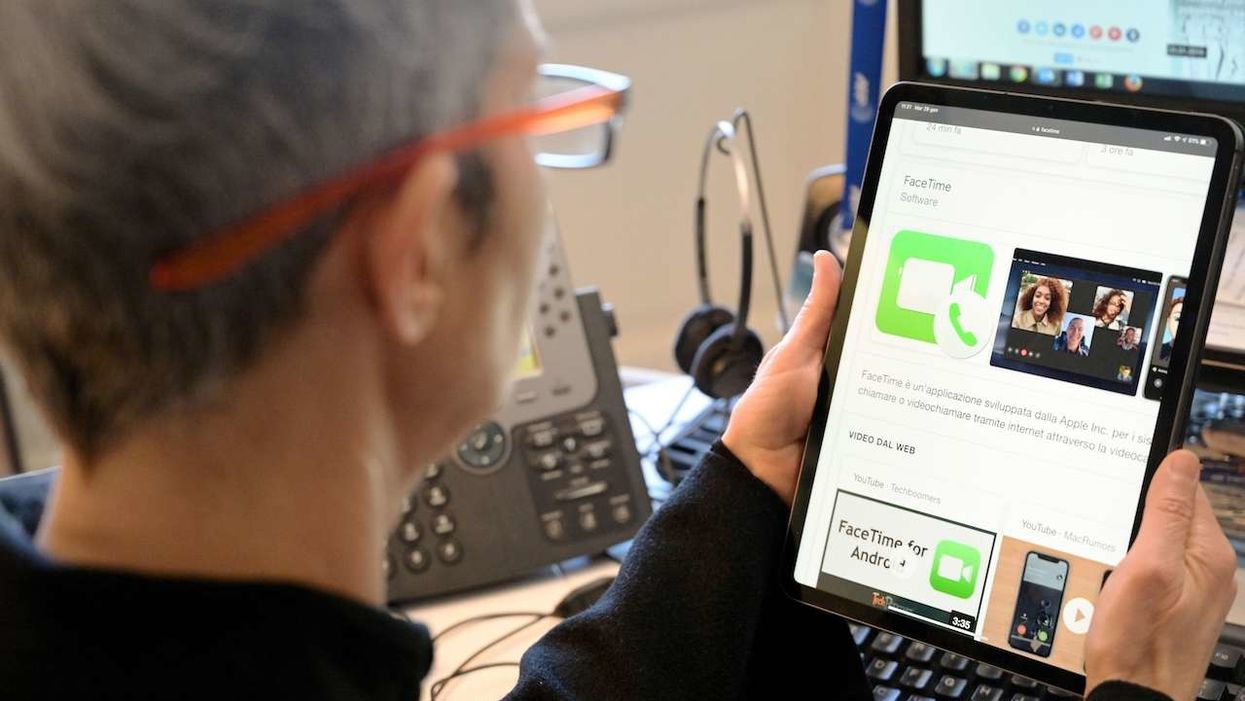
Vincenzo Pinto/AFP/Getty Images

The bug affects devices using iOS 12.1 or later
Apple is rushing to fix a serious bug that allows Apple's FaceTime to eavesdrop on the person they're calling before the call is accepted or rejected, 9to5Mac reported.
The bug allows an iOS user to listen in on another IOS user they called using FaceTime. Also, video can be exposed. But since the phone rings like usual, it's not wholly undercover.
It likely affects any pair of iOS devices running iOS 12.1 or later, including iPhone, iPad, and Mac, according to the report.
A person starts a FaceTime call with another iPhone user.
Once the call begins dialing the other person, swipe up from the bottom of the screen and tap on "Add Person" and type in your own phone number.
That will initiate a group FaceTime call including yourself and the audio of the other person you called, whether they answer the call or not.
It will appear as if the other person joined the group chat, but their phone will be ringing on the lock screen.
If the person you called presses the power button from the lock screen, you'll also receive their video. If this happens, the caller can hear your audio, but they aren't aware that you are hearing them or seeing their video.
"We're aware of this issue and we have identified a fix that will be released in a software update later this week," Apple said in a statement Tuesday, according to Fox News.
Users who want to bypass the bug should disable the FaceTime application on their devices.
Disable FaceTime on your iPhone by opening the settings application, scrolling to the FaceTime icon and switching the toggle to grey.
On your iPad or Mac, open the FaceTime app, click on "FaceTime," and then choose, "turn off FaceTime."
The problem was discovered on Data Privacy Day. The same day, Apple CEO Tim Cook tweeted about privacy protections.
"We must keep fighting for the kind of world we want to live in. On this #DataPrivacyDay let us all insist on action and reform for vital privacy protections. The dangers are real and the consequences are too important," Cook wrote.
We must keep fighting for the kind of world we want to live in. On this #DataPrivacyDay let us all insist on action and reform for vital privacy protections. The dangers are real and the consequences are too important.
— Tim Cook (@tim_cook) January 28, 2019